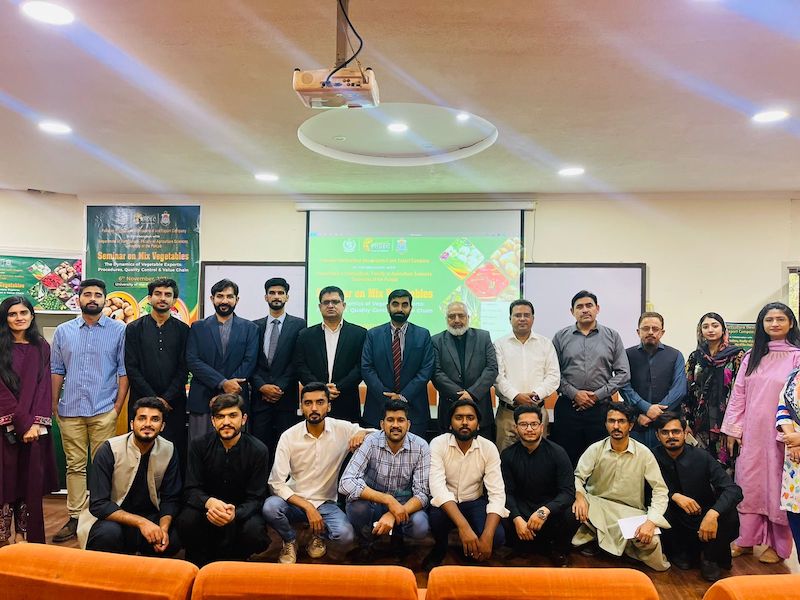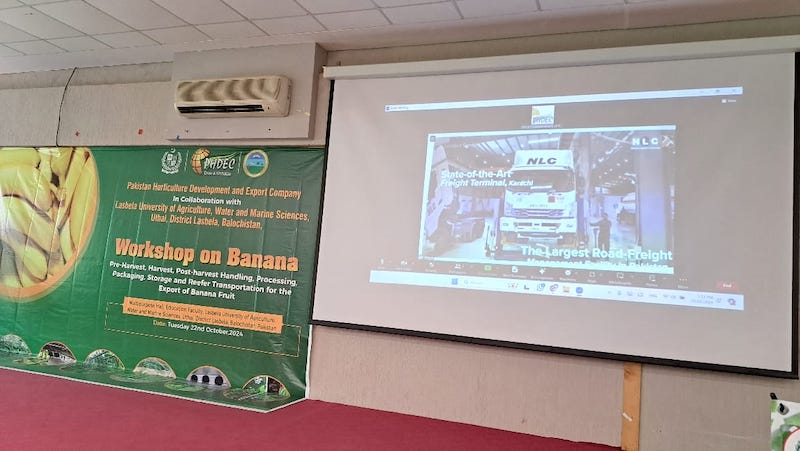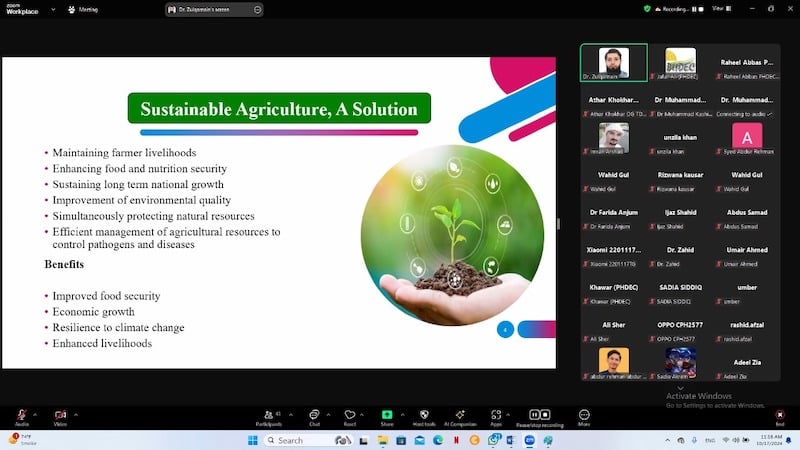Improving the quality of Pakistani chilies for export
Today (November 12, 2024), Pakistan Horticulture Development and Export Company (PHDEC) organized a workshop at the Arid Zone Research Center (AZRC) in Umerkot, Sindh, aimed at improving the quality of Pakistani chilies for export. A key highlight of the workshop was the introduction of the Solar Tunnel Dryers for Export-Quality Dried Chilies project, funded by the Export Development Fund (EDF) and executed with PHDEC support at AZRC.Chili is one of Pakistan’s primary vegetable crops, producing approximately 143,000 tons annually, largely cultivated in Sindh. Pakistani chilies are exported in fresh, dried, and powdered forms. However, the export market faces two significant challenges: aflatoxin contamination and Maximum Residue Limit (MRL) violations. These issues have led to the rejection of chili consignments, posing a serious risk to Pakistan’s export potential and risking potential bans in international markets. Proper drying and post-harvest handling are essential to manage aflatoxin contamination effectively.In response, PHDEC, in collaboration with AZRC, launched the Promotion of Solar Tunnel Dryers for Exportable Chilies project, funded by EDF. This initiative involves distributing 34 solar tunnel dryers to chili farmers and exporters in Umerkot and Kunri to help control aflatoxin levels and produce export-grade chilies. By promoting these dryers, PHDEC aims to spread awareness among chili sector stakeholders about effective post-harvest techniques that will enhance the quality and exportability of Pakistani chilies.The workshop featured an in-depth presentation on the causes of aflatoxin contamination, along with practical control measures. Additionally, to address the MRL concerns, experts presented a comprehensive plan outlining recommended pesticides, application timing, and Pre-Harvest Intervals (PHIs) to help farmers comply with export safety standards.The workshop concluded with a Q&A session, where participants expressed appreciation for PHDEC’s efforts in supporting Pakistan’s chili industry. Through initiatives like this, PHDEC is committed to empowering the chili sector with sustainable practices to boost exports and ensure compliance with international standards.











